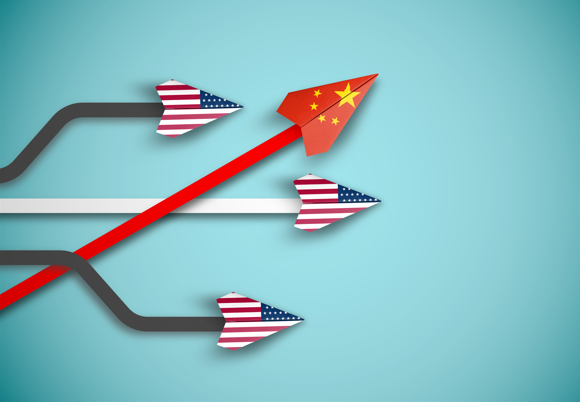Zhang Yun, Professor, School of International Relations, Nanjing University
Feb 13, 2022
The United States and its allies need to make a strategic shift in their Asian strategy, away from their highly militarized mindset and toward thinking about what countries in the region want.
Minxin Pei, Tom and Margot Pritzker ’72 Professor of Government , Claremont McKenna College
Jan 07, 2022
During the Cold War, Europe was America’s strategic priority. East Asia was largely a sideshow, even though the United States fought bloody wars in Korea and Vietnam, and also provided security for Japan, South Korea, and Taiwan.

Yan Xuetong, Distinguished Professor, Tsinghua University
Dec 28, 2021
Strategic competition between China and the United States should be characterized not as a new cold war but as an uneasy peace. Shooting is not likely to break out, but the two countries will remain in dread of each other in the coming decade.
Han Liqun, Researcher, China Institutes of Contemporary International Relations
Dec 22, 2021
Unless the United States comes up with a way to promote regional interaction, it will become increasingly difficult to return to a constructive track. It risks becoming a bystander, a follower or even a saboteur of economic cooperation.
Guo Chunmei, Associate Researcher, Institute of Southeast Asian and Oceanian Studies, CICIR
Nov 01, 2021
A just cause enjoys abundant support while an unjust one does not. At a time when most countries in the Asia-Pacific region are striving to maintain peace and stability, the U.S. has deliberately waded in to create antagonism and the potential for cutthroat competition.
Richard Javad Heydarian, Professorial Chairholder in Geopolitics, Polytechnic University of the Philippines
Oct 26, 2021
Both the EU and ASEAN have largely criticized the newly announced AUKUS deal, leaving many European nations and China’s neighboring states scrambling to respond to the addition of nuclear submarines to Australia’s arsenal.
Chen Zinan, Assistant Researcher, Maritime Strategy Studies, CICIR
Sep 18, 2021
Maintaining the old zero-sum mentality against China, the United States starts with its own interests in mind, rather than the needs of the island nations. Its diplomatic and military focus will not contribute to development and will ultimately fail.
Li Yan, Director of President's Office, China Institutes of Contemporary International Relations
Aug 23, 2021
For a decade, the focus of the United States has shown a high degree of continuity, starting with George W. Bush and followed by Barack Obama, Donald Trump and now Joe Biden. But America is now paying greater attention to detail and adding new features to its geostrategic approach.
Richard Javad Heydarian, Professorial Chairholder in Geopolitics, Polytechnic University of the Philippines
Aug 12, 2021
The U.S. has seemingly pulled out all the stops to advance its agenda in Southeast Asia, hoping to entice countries away from China. Yet, as members of China’s neighborhood, ASEAN members will find it hard to create distance between themselves and China, literally and figuratively.
Su Jingxiang, Fellow, China Institutes for Contemporary International Relations
Nov 12, 2020
The U.S. has placed the other members of the group in a disadvantageous position, expecting each of them to confront China. Instead, what they will discover is that they are missing out on the benefits China offers.
Back to Top

- China-US Focus builds trust and understanding between the U.S. and China through open dialogue among thought leaders.
- Our Offerings
- Topics
- Videos
- Podcasts
- Columnists
- Research Reports
- Focus Digest
- Stay Connected
-
Thanks for signing up!
- Get the latest stories from China-US Focus weekly.